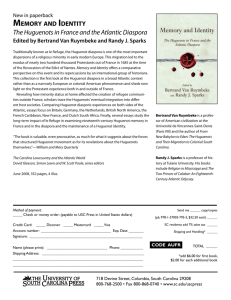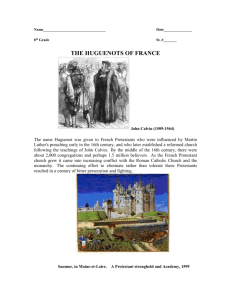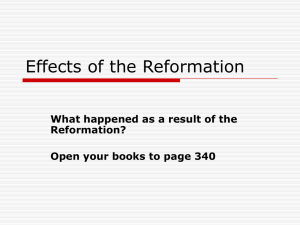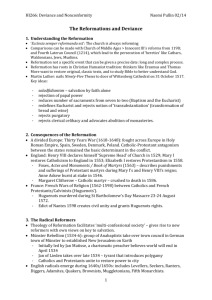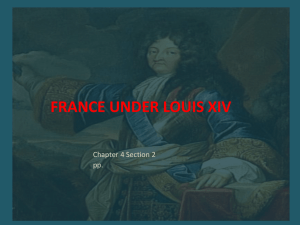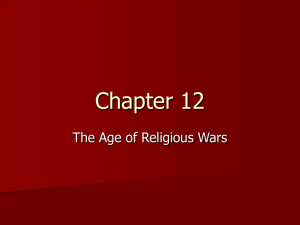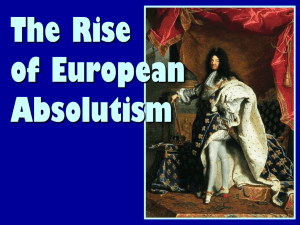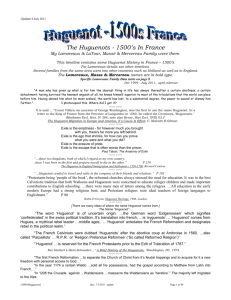The Huguenots of France
advertisement
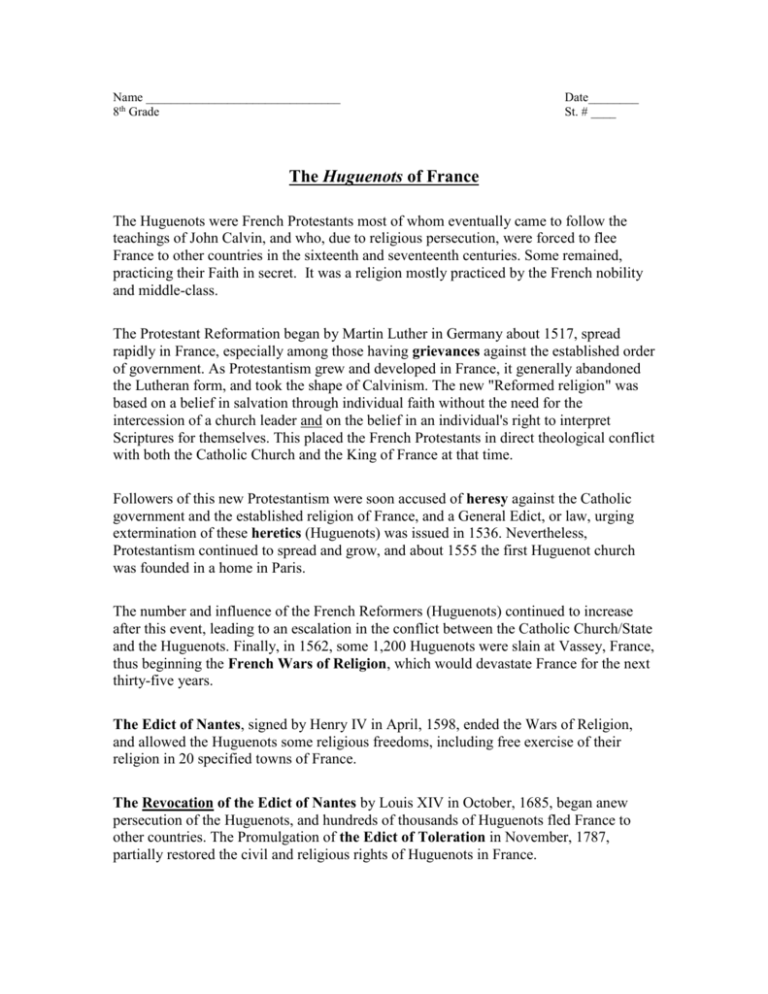
Name _______________________________ 8th Grade Date________ St. # ____ The Huguenots of France The Huguenots were French Protestants most of whom eventually came to follow the teachings of John Calvin, and who, due to religious persecution, were forced to flee France to other countries in the sixteenth and seventeenth centuries. Some remained, practicing their Faith in secret. It was a religion mostly practiced by the French nobility and middle-class. The Protestant Reformation began by Martin Luther in Germany about 1517, spread rapidly in France, especially among those having grievances against the established order of government. As Protestantism grew and developed in France, it generally abandoned the Lutheran form, and took the shape of Calvinism. The new "Reformed religion" was based on a belief in salvation through individual faith without the need for the intercession of a church leader and on the belief in an individual's right to interpret Scriptures for themselves. This placed the French Protestants in direct theological conflict with both the Catholic Church and the King of France at that time. Followers of this new Protestantism were soon accused of heresy against the Catholic government and the established religion of France, and a General Edict, or law, urging extermination of these heretics (Huguenots) was issued in 1536. Nevertheless, Protestantism continued to spread and grow, and about 1555 the first Huguenot church was founded in a home in Paris. The number and influence of the French Reformers (Huguenots) continued to increase after this event, leading to an escalation in the conflict between the Catholic Church/State and the Huguenots. Finally, in 1562, some 1,200 Huguenots were slain at Vassey, France, thus beginning the French Wars of Religion, which would devastate France for the next thirty-five years. The Edict of Nantes, signed by Henry IV in April, 1598, ended the Wars of Religion, and allowed the Huguenots some religious freedoms, including free exercise of their religion in 20 specified towns of France. The Revocation of the Edict of Nantes by Louis XIV in October, 1685, began anew persecution of the Huguenots, and hundreds of thousands of Huguenots fled France to other countries. The Promulgation of the Edict of Toleration in November, 1787, partially restored the civil and religious rights of Huguenots in France. Since the Huguenots of France were in large part artisans, craftsmen, and professional people, they were usually well received in the countries to which they fled for refuge when religious discrimination or overt persecution caused them to leave France. Most of them went initially to Germany, the Netherlands, and England, although some found their way eventually to places as remote as South Africa. Considerable numbers of Huguenots migrated to British North America, especially to the Carolinas, Virginia, Pennsylvania, and New York. Their character and talents in the arts, sciences, and industry were such that they are generally felt to have been a substantial loss to the French society from which they had been forced to withdraw, and a corresponding gain to the communities and nations into which they settled. Origin of the Word Huguenot The exact origin of the word Huguenot is unknown, but many consider it to be a combination of Flemish and German. Protestants who met to study the Bible in secret were called Huis Genooten, meaning "house fellows." They were also referred to as Eid Genossen, or "oath fellows" meaning persons bound by an oath. Adapted from the website http://www.huguenot.netnation.com/general/huguenot.htm ------------------------------------------------------------------------------------------------------------ANSWER THE QUESTIONS BASED ON THE READING: 1. Who were the Huguenots AND when did they live? 2. Using the context, what do you think the word grievances mean? 3. What was the “Reformed religion” of the Huguenots based on? 4. Based on the reading, what do you think heresy means AND why were the Huguenots called heretics? 5. What were the French Wars of Religion AND how long did they last? 6. Why was the Edict of Nantes a great event for the Huguenots? 7. Based on the context, what does the word revocation mean? 8. What did the Revocation of the Edict of Nantes cause? 9. Why did the communities and nations where the Huguenots flee to consider themselves to have gained by their coming? 10. Even though the origin of the word Huguenot is not exactly known, what do some people believe it means?
